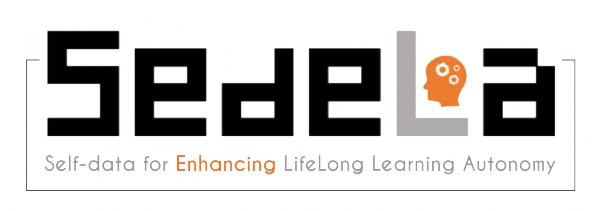We all know that a person will have many different jobs during his/her life. Lifelong Learning is becoming a central asset, beginning during initial training at university, but currently there is a lack of appropriate tools and methods combining self-reflective learning support and social interactions. Learner empowerment relates to the ability for a person to be able to define his/her own learning path and act on his/her environment, including peer learning. It is a prerequisite for autonomy, to become a full citizen.
Self-regulated learning methods, learner models and trust are key issues to support lifelong learning. The mastering of self-regulated learning methods is enhanced by digital tools, as the willingness to develop digital literacy prove it. Learner models designed to develop such instrumentation lack a real collaboration between learning process support needs and new opportunities provided by data availability. Current support thanks to reflexive instrumentation is still very basic, related to short term or specific data. Trust in tools is becoming a central concern in digital society, especially when personal data are handled, as it is the case in learning. When trust is ensured, new innovative services may be designed that empower people and change their usage.
Self-regulated learning process, learner models, and trust are hence tightly coupled. A holistic approach is needed to propose more effective self-regulated learning process, taking advantage of relevant services based on more expressive learner models, whose acceptability is enhanced by trust in collaboration. Consequently, the main goal of the multidisciplinary project Sedela, is to design, develop, experiment and evaluate an improved model of Self-Regulated Learning Process, supported by Semantic Open Learner Models, Trusted collaborative services and an experimental infrastructure, in a lifelong learning and trusted perspective.
Partners


